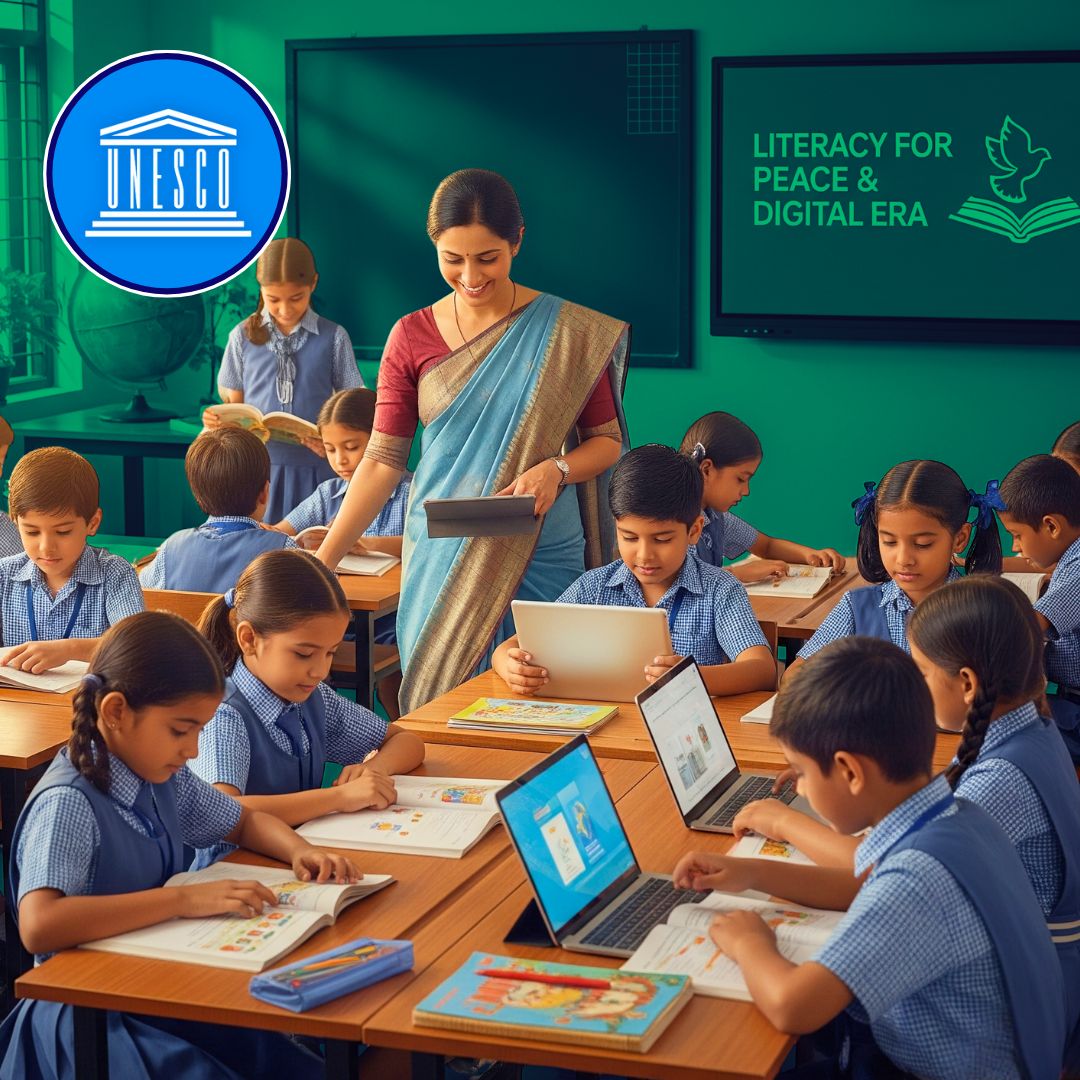International Literacy Day 2025, celebrated globally on September 8, serves as a vital reminder of the persistent challenge of illiteracy and highlights UNESCO’s advocacy for literacy as a universal human right. The date traces its roots to the Tehran Conference of 1965, with UNESCO’s official proclamation in 1966 formalising September 8 as a day for reflection, mobilisation, and catalysing action.
This year’s theme centres on “Promoting Literacy in the Digital Era” and “Promoting Multilingual Education: Literacy for Mutual Understanding and Peace,” reflecting the changing landscape of education and inclusion in a technology-driven world. Hundreds of countries participate annually, reaffirming their commitment to both progress and enduring gaps, and UNESCO continues to champion literacy as fundamental to dignity, peace, and sustainable development.
Literacy as the Foundation for Human Rights and Peace
International Literacy Day stands as one of the most significant observances in the global education calendar, celebrated across continents, cultures, and communities. UNESCO’s foundational intent, highlighted through repeated conferences and declarations, is to make literacy a cornerstone of dignity and global peace, elevating its status from a basic skill to a fundamental human right.
Over 763 million adults still lack essential literacy, with UNESCO and governments documenting progress and persistent gaps. The involvement of educators, civil society, and local leaders is critical as they mobilise support through workshops, seminars, and community-based programmes.
In India, the celebrations also resonate with the spirit of Teacher’s Day on September 5, honouring Dr Sarvepalli Radhakrishnan and affirming the nation-building role of educators. Dr Radhakrishnan’s view that “teachers should be the best minds in the country” continues to inspire advocacy and action.
Bridging the Digital Divide and Fostering Multilingual Education
This year’s dual themes underscore urgent challenges and opportunities in the evolving literacy landscape. The focus on digital literacy recognises the transformative impact of technology on communication, learning, and employment. UNESCO calls for integrating digital skills with traditional education, acknowledging that the digital divide remains a barrier for millions, particularly in marginalised communities.
Governments around the world, including India, are adapting their strategies by rolling out digital education initiatives alongside conventional literacy programmes. The multilingual aspect highlights the importance of diverse languages in fostering understanding, inclusion, and peace-building, with research pointing to cognitive and social benefits. Multilingual approaches are especially vital for children and adults in linguistically rich yet underserved areas, promoting empowerment, cohesion, and recognition of minority voices.
The Logical Indian’s Perspective
The Logical Indian believes that literacy is an enduring foundation for peace, prosperity, and justice. As we mark International Literacy Day 2025, the commitment to universal literacy must go beyond numbers to guarantee quality, inclusion, and empathy in all educational endeavours.
Advancing digital skills while nurturing multilingual environments ensures every individual – regardless of background or geography – can participate meaningfully in society. Our educators, policymakers, and civil society must work hand in hand to integrate new forms of learning without leaving behind those who lack resources or recognition.











